WHISTLEBLOWING
/
LAMITEX S.p.A. is committed to conducting business ethically and responsibly. Personnel, collaborators – including administrators, executives, supervisory authorities, managers, employees, and any other collaborators – as well as its business partners are asked to act accordingly and to respect the following guidelines:
- The Code of Ethics of the Company;
- Applicable laws and regulations;
- Orders of the Authorities;
- The Organization, Management, and Control Model required by Italian Legislative Decree No. 231/2001, and the Company procedures.
WHAT TO REPORT
LAMITEX S.p.A. encourages its stakeholders to report any infringement or suspected infringement of national or European legislation that harms the public interest or the integrity of public administration or of the Company, as well as all violations of principles and prescriptions of the Organization, Management, and Control Model and/or in the Code of Ethics of LAMITEX S.p.A. which came to their knowledge within their professional, public or private context.
LAMITEX S.p.A. has therefore implemented specific rules and a whistleblowing process to provide potential Whistleblowers secure channels that guarantee the confidentiality of their identity as well as the information contained in the report and their protection against any retaliation.
HOW TO REPORT
a) Whistleblowing platform
LAMITEX S.p.A. has provided an external digital platform, managed by a specialized third party, to ensure the effectiveness and confidentiality of the reporting process and provide broad and indiscriminate access to all those who want to make a report. The platform is accessible both from the www.lamitex.it website and from the Company intranet.
Even though anonymous whistleblowing reports are accepted, LAMITEX S.p.A. encourages Whistleblowers to favor the identified ones, to streamline investigations and make them more effective.
b) Other internal reporting channels
Whistleblowing reports can also be sent to the ordinary mail at the address: Avv. Enrico Bevilacqua, Piazzale Ellero dei Mille n.6, 33170 Pordenone (LAMITEX S.p.A. Internal Reporting Manager). It will be necessary to adopt the measures set out in the Whistleblowing management procedure, to ensure the confidentiality required by Italian Legislative Decree No. 24/2023 as well as the confidential registration of the report issued by the Reporting Manager.
Should the Whistleblower request a direct meeting through the aforementioned channels, the Reporting Manager will be available to collect the report.
Formalities
N.B. It is the Whistleblower’s responsibility to specify in the report if they wish to keep their identity confidential and to benefit from the protections from all retaliation.
In the absence of such a specification, the report may be treated as an ordinary report not covered by Legislative Decree No. 24/2023, therefore making any right and guarantees inapplicable.
If the report is erroneously submitted to a non-competent authority, the specification allows the immediate submission to the authorized Reporting Manager, in compliance with legal safeguards for confidentiality.
WHAT DOES LAMITEX DO AFTER RECEIVING THE WHISTLELOWING?
The whistleblowing process consists of the following steps:
- Receipt of whistleblowing reports;
- Preliminary assessment;
- Investigation;
- Closing of reports.
Within seven days of the receipt of the report, the Reporting Manager will send the Whistleblower an acknowledgment of receipt of the report, and will open an investigation aimed at objectively ascertaining whether the reported facts are grounded or not. The results of the investigation will be submitted to the appropriate competent authorities for the determination of any disciplinary measures according to the Disciplinary System and the system of delegations in force.
WHAT NOT TO REPORT
Whistleblowing disclosures other than those described above will not be dealt with, in particular those referred to commercial requests and complaints. In case of groundless whistleblowing disclosures, made in bad faith or with gross negligence, LAMITEX S.p.A. reserves the right to act in defense of its own interests or damaged parties.
RIGHTS AND GUARANTEES
The Reporting Manager as well as all LAMITEX S.p.A. personnel involved in the reporting management are required to preserve the confidentiality of the report, its content, and the documents related as well as that of the Whistleblowers (if provided), the facilitators (if any), the reported parties and/or all of the parties that are involved or mentioned in the whistleblowing report.
LAMITEX S.p.A. prohibits and penalizes any form of retaliation or discrimination against whistleblowers (as well as all cooperating personnel that worked to establish the reported facts) upon the reasonable conviction that the information inside their reports is truthful and falling within the scope of the application of Legislative Decree No. 24/2023 whether the whistleblowing turns out to be well founded or not.
RETALIATION REPORTING
Individuals who have or may have suffered retaliation based on report, complaint, or public disclosure have the right to report it to the National Anti-Corruption Authority (ANAC).
If they have suffered retaliation based on report, complaint, or public disclosure the following individuals can report it to ANAC: Whistleblowers, facilitators, people in the same working context, work colleagues, legal entities owned by the Whistleblower, entities for which the Whistleblower works, or entities operating in the same working context.
When reporting a retaliation it is necessary to confirm the consistency between the report, complaint, or public disclosure and the alleged retaliation. Whistleblowers must provide ANAC with objective information supporting the consequential relationship between the report, complaint, or public disclosure made and the alleged retaliation.
In such cases, upon receipt of the communication, ANAC carries out the checks required by the law and, if the retaliatory nature of actions, measures, behaviors, or omissions that have been taken, attempted, or threatened is confirmed, it will result in their nullification and the application of an administrative fine.
EXTERNAL REPORTING METHODS – CHANNELS, CONDITIONS AND PROCEDURES
The National Anti-Corruption Authority (ANAC) has provided an external reporting channel for any infringements of national or European legislation that harm public interest or the integrity of public administration or of the Company and/or any additional infringement better described in section 4 above. The reporting channel preserves the confidentiality of the Whistleblower, the people involved, and the reported person as well as that of the content of the report and the documents related.
The confidentiality of the Whistleblower is protected even if the report is made by means other than those established in accordance with this procedure, or reaches staff other than the Reporting Manager, to whom, in any case, the reports must be transmitted without delay.
Conditions for external reporting
Access to the ANAC channel is only possible under certain conditions that are explicitly envisaged by the legislator. Whistleblowers may report through an external channel if at least one of the following conditions applies while they are reporting:
a) The mandatory internal channel is not active or is active but does not comply with the provisions of
Legislative Decree No. 24/2023 regarding the subjects and methods of submitting internal reports;
b) The Whistleblower has already made a report through the internal channel, but no action was taken.
c) The Whistleblower has reasonable grounds to believe that – based on the circumstances of the
particular case that are attached to the report, and on information that can be acquired – if they made
a report through the internal channel, the report would not be managed or that they would expose
themselves to risks of retaliation;
d) The Whistleblower has reasonable grounds to believe that the infringement may constitute an
imminent or manifest danger to the public interest.
External reporting channels
External reports can be made:
- In writing, using the digital platform provided by ANAC;
- Orally, through the telephone lines or the voice messaging system provided by ANAC;
- Through a direct meeting requested by the Whistleblower and set within a reasonable time limit.
The external report presented to an entity other than ANAC is sent to the latter, within seven days from the date of its receipt, simultaneously informing the Whistleblower of such transmission.



